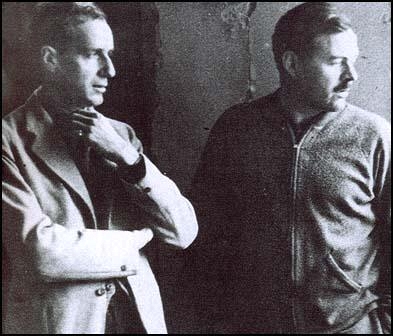Although he arrived with little sympathy for the Popular Front government. Constancia de la Mora, who worked with Herbert Matthews in Spain, remarked: "Tall, lean, and lanky, Matthews was one of the shyest, most diffident men in Spain. He used to come in every evening, always dressed in his gray flannels, after arduous and dangerous trips to the front, to telephone his story to Paris, whence it was cabled to New York... For months he would not come near us except to telephone his stories - for fear, I suppose, that we might influence him somehow. He was so careful; he used to spend days tracking down some simple fact - how many churches in such and such a small town; what the Government's agricultural program was achieving in this or that region. Finally, when he discovered that we never tried to volunteer any information, even to the point of not offering him the latest press release unless he specifically requested it, he relaxed a little. Matthews had his own car and he used to drive to the front more often than almost any other reporter. We had to sell him the gasoline from our own restricted stores, and he was always running out of his monthly quota. Then he used to come to my desk, very shy, to beg for more. And we always tried to find it for him: both because we liked and respected him and because we did not want the New York Times correspondent to lack gasoline to check the truth of our latest news bulletin."
As Time Magazine pointed out: "When he got to Spain, his first lesson began to sink in: Fascism was designed for export, and anybody who did not want to import it must fight it. Somewhere between Valencia, blitzed Barcelona and Madrid, his ivory tower crumbled, and Matthews stepped from its rubble to do the best reporting of his career. Because it was also optimistic reporting, he wound up feeling as sick at heart as the Spanish Republicans."
|
